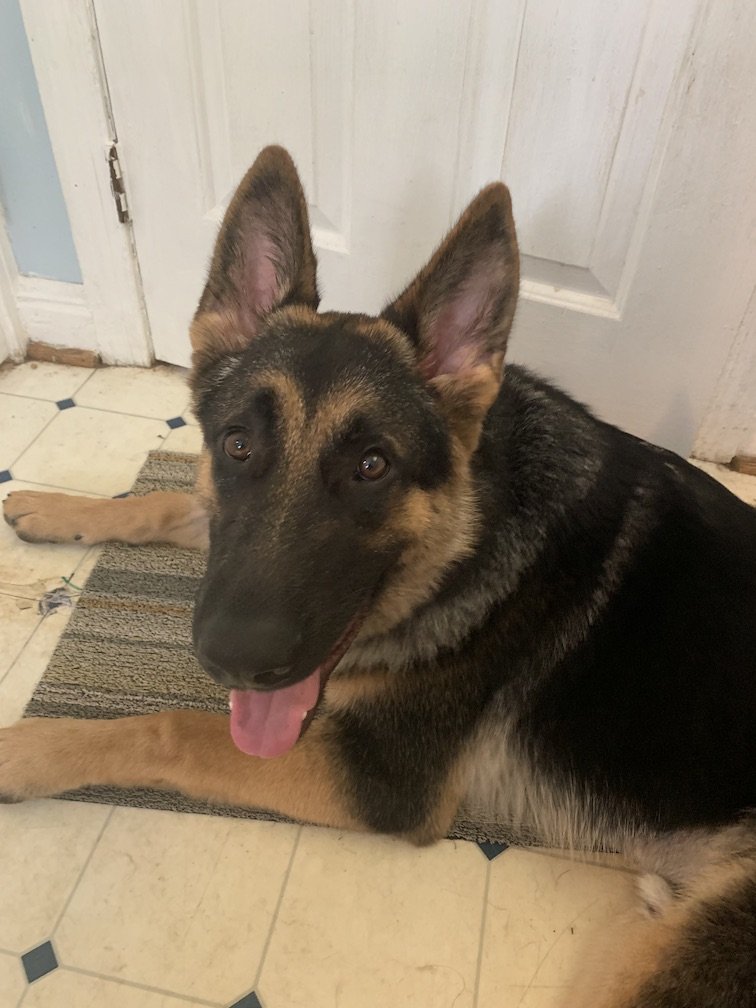Tips for Selecting a Professional Dog Trainer
Whether you’re a new dog owner, seeking dog training for the first time, or looking for a new professional to train your dog, the following tips will help you find the best professional dog trainer to work with your pup so you can both start living your best lives.
Look for a Trainer Who Understands Your Dog’s Behavior (And Helps You Understand it as Well)
It’s difficult to properly correct behavior that you don’t understand. A professional dog trainer needs to know how a dog thinks and use that information to help you work with your dog so they can feel more confident, secure, and happy.
The right trainer will take the time to understand your specific dog and what motivates them. This makes an in-person consultation essential, as it’s the best way to observe how you and your family live with your dog.
An in-person visit also allows the trainer to see how the dog interprets your behavior and any problematic behaviors the dog may have, such as barking or lunging. When deciphering behavior, understanding the dog’s body language is the most important thing, so the trainer should interact with your dog in person before making any suggestions.
Ask How They Have Trained Dogs in the Past (Especially Those With Certain Behavioral Problems)
A good dog trainer will have experience with many types of dogs with many different behavioral issues. Ask the trainer how they have previously trained other dogs with specific behavioral problems.
Their expertise should go beyond obedience training. An experienced trainer will have worked with fearful, aggressive, hyper, or destructive dogs. Most importantly, their experience should align with your goals for your pup’s training.
Hire a Trainer That Sees You and Your Dog’s Relationship for What It Is—Unique
Just as each dog is unique, so is its relationship with the owner. An experienced dog trainer should look at the entire relationship between you and your dog, including how you interact, how you live with your dog, and what you expect from them.
A dog trainer should never simply teach a technique, preach a philosophy, or put more equipment (or tools) on the dog. They should observe you and your dog, understand your dog’s behavior, and see your unique relationship in its entirety.
By doing so, the trainer can work with you to deliver specific advice, suggestions, and helpful tools for your pup rather than guessing or giving potentially harmful feedback. Working with an experienced professional can help both you and your dog have the best experience and develop a healthy relationship based on mutual trust and respect.
Search for a Trainer Who Teaches Why Certain Tools Are Right (or Wrong) for Your Dog
Professional dog trainers tend to use specific tools to help dogs learn. However, not all tools will work for all dogs, so look for a trainer who is selective about the tools they use and does not insist that every device is right for every dog.
For example, prong collars might be helpful for someone who is smaller in stature but has a large dog. The prong can be a way for the owner to firmly correct the dog without causing discomfort. However, not every dog or owner will benefit from this tool.
Tools dog trainers may use include:
Martingale collars
Flat/buckle collars
Prong/pinch collars
Electric collars
Halti/snoot loop
Body harnesses
Each dog is different, so search for a trainer who has flexibility with the tools they use and makes suggestions that benefit your specific dog rather than adhering to a “one-size-fits-all” rule.
Be Wary of Trainers Who Insist Their Method Is the “Best” or Only Use Specific Tools
A knowledgeable and experienced dog trainer should never use one specific tool on every dog or insist their method is the “best” or only way.
Some trainers who exclusively focus on obedience training will overuse or incorrectly use tools and create a dog that has lost trust. These dogs may have their behavioral issues “corrected,” at least temporarily, but the behavior may return if the tool is misused, sometimes worse than before.
The right dog trainer for your fur baby will never focus exclusively on obedience or tools; they will not insist that their way is the only way. Having a healthy and happy pup is more than a dog obeying commands. It’s about developing a strong relationship with the animal based on trust in which you can both ultimately thrive.
Work With Us at Nova Pack Dog Training
By following the above tips, you can find the right dog trainer to help you appropriately address behavioral issues while incorporating obedience training and building confidence in your pup. Are you ready to help your dog thrive with professional dog training? Contact Nova Pack Dog Training today for an in-home consultation!




